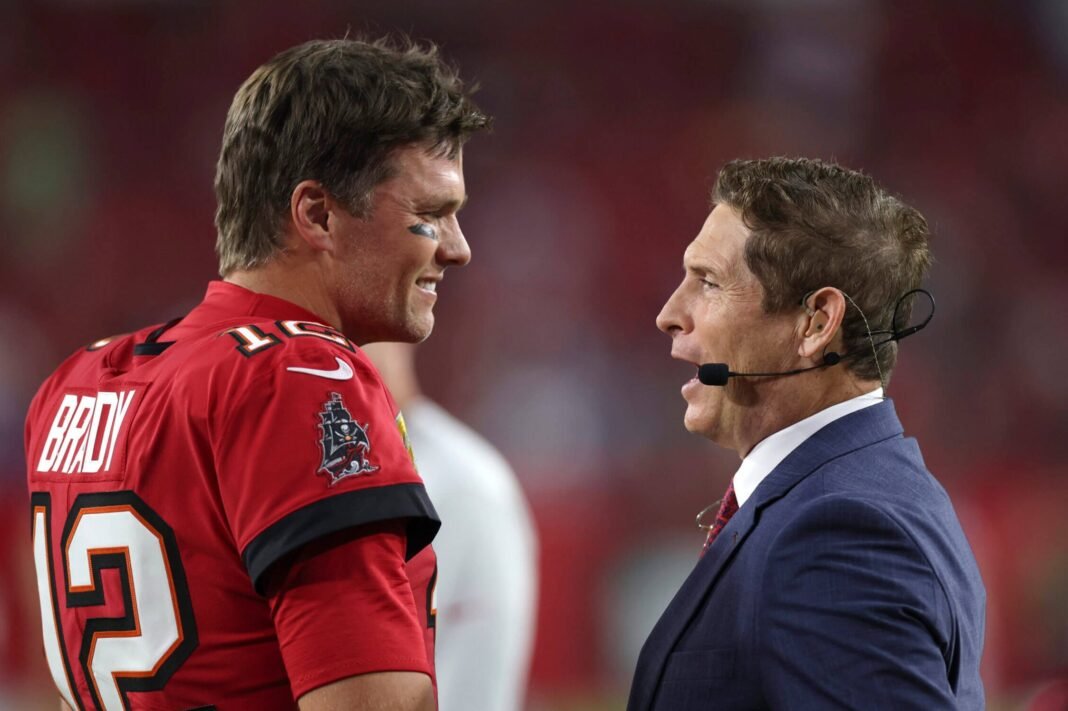The Daily Observer London Desk: Reporter- Judith Benjamin
ATHERTON, Calif. — The freshman runs a hitch-and-go for Menlo School on a play called “X train.”
This is Laila Young’s first flag football game, but she looks like she played in a previous life, moving so smoothly and decisively. Her sister, Summer, a senior, is also a natural, covering big chunks of turf with long strides.
Laila plays the X position — “I tell her she’s John Taylor, the most underappreciated athlete in history,” her father says. Summer is the Z — “Jerry Rice’s position,” Dad says.
The route Laila runs is a good one, but she has to come back for an underthrown pass. The ball hits her hands and falls to the ground. The play should have been a touchdown and Menlo should have won. Instead, it loses to Sacred Heart 2-0 on a safety.
“I don’t know if I’ve ever seen a more forlorn group of people,” Laila’s father says.
Fathers are often looked to for perspective, which is the case now. But Laila’s dad is more than Dad. He’s an assistant coach for Menlo. And he’s a two-time NFL MVP, a Super Bowl MVP and first ballot Hall of Famer.
So father puts his arm around daughter and tells a story, the kind he usually would not tell his children without prompting.
“It was 1991, and we were in the L.A. Coliseum playing the Raiders,” Steve Young begins.
The 49ers went 14-2 in each of the previous two seasons. Joe Montana, their quarterback, was mythical in 49ers lore by then. But during the 1991 preseason, Montana, the reigning MVP, injured his elbow, forcing Young into the lineup. Then they began the season 2-2.
“The 49ers needed to win this game,” Young continued, “but I needed to win this game — me. We trailed 12-6 and we were driving to win. Time was running out. It was fourth-and-7 on the Raider 19. I was running around trying to find somebody to throw the football to and Jerry was open in the end zone, almost like waving his arms. But I didn’t see him until I watched the tape the next day. I threw an incompletion. We lost.”
It was, Young remembers, one of the most bitter feelings of his life.
“The regret you are feeling, Laila, is the same kind of regret I was feeling at the Coliseum,” he tells his daughter. “Part of the reason you go out there is to learn from that, to find a way to make it a positive. There is great potential in not catching that pass. You have to find it.”
This is an opportunity for Laila.
And it’s an opportunity for Steve.
But it’s not just any opportunity.
Coaching this team, in his mind, is a sacred calling.
After the loss to the Raiders that Steve told Laila about, volatile 49ers defensive end Charles Haley raged at Young in the locker room, blaming and threatening. He put his fist through a glass door and wouldn’t calm down until former 49er Ronnie Lott, who had joined the Raiders as a free agent, was summoned to mollify him.
A Montana loyalist, Haley had bullied Young for years by then, so much so that Young often asked team employees where Haley was so he could try to avoid him, even if it meant skipping treatment he needed in the trainer’s room.
In 1987, Young agreed to be traded to the 49ers from the Tampa Bay Buccaneers with the idea — promoted by 49ers coach Bill Walsh — that Montana might not play again because of back problems. But Montana’s back was strong enough to carry a team on it, and Montana did so in the 1988 and 1989 seasons, leading the 49ers to his third and fourth Super Bowl victories.
By then, everybody was convinced Young would never be Montana, and Young was reminded of it ad nauseam by hostile fans and venomous commentators. The San Francisco Chronicle published an op-ed with the headline “The Gulf War: It’s Steve Young’s Fault.”
For four years, Young was second string. In one of the years, he was so disenchanted he refused to cash paychecks for an entire season — $4 million worth — until the team talked him into it after the season ended.
As the circumstances would have it, the Montana relationship was professional but prickly. Even olive branches had thorns. When Montana invited Young for Christmas dinner, one of Montana’s young children interrupted and asked, “Dad, is this the guy we hate?”
Rice never expressed animosity, but his preference for Montana was clear. He was uncomfortable with the backward spin on Young’s throws (Young is a lefty; Montana a righty) and uneasy about Young’s disregard for staying in the pocket.
Someone who loved the game less would have been crushed by the pressure. Young responded with exuberance. When Rice ran a reverse against the Chicago Bears in 1987, Young blocked defensive lineman Dan Hampton as if he were a monster truck. Teammates called him “Crash” after that.
Fearless and fast, Young ushered in a new era of running quarterbacks. But like most young passers blessed with speed, he was too quick to tuck and run. His coaches challenged him to learn to win from the pocket. It was one he embraced.



